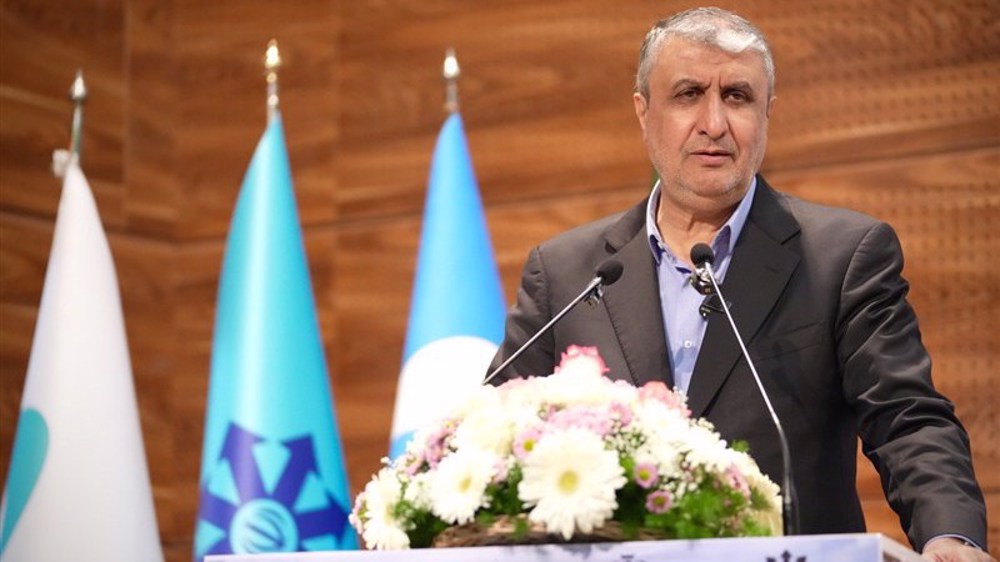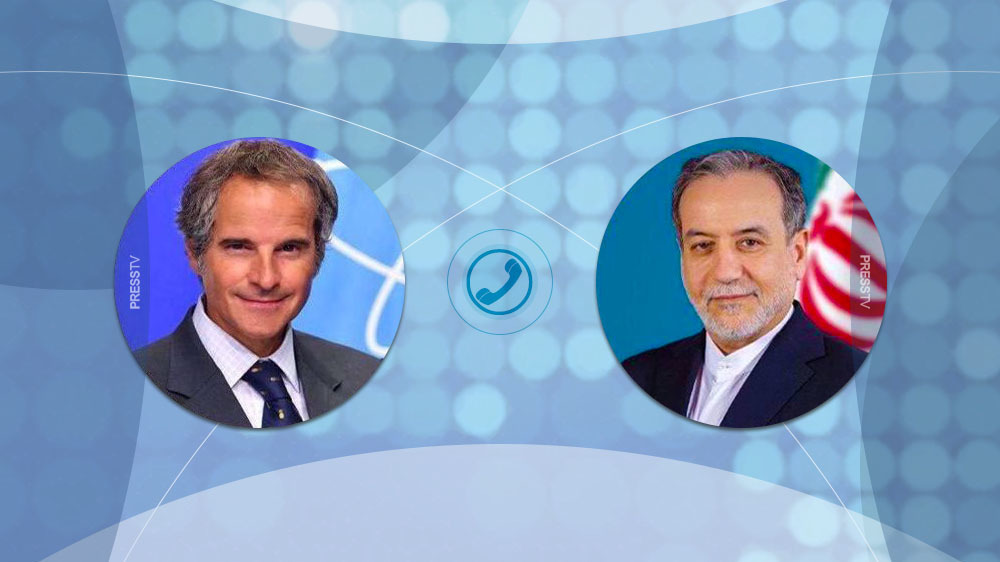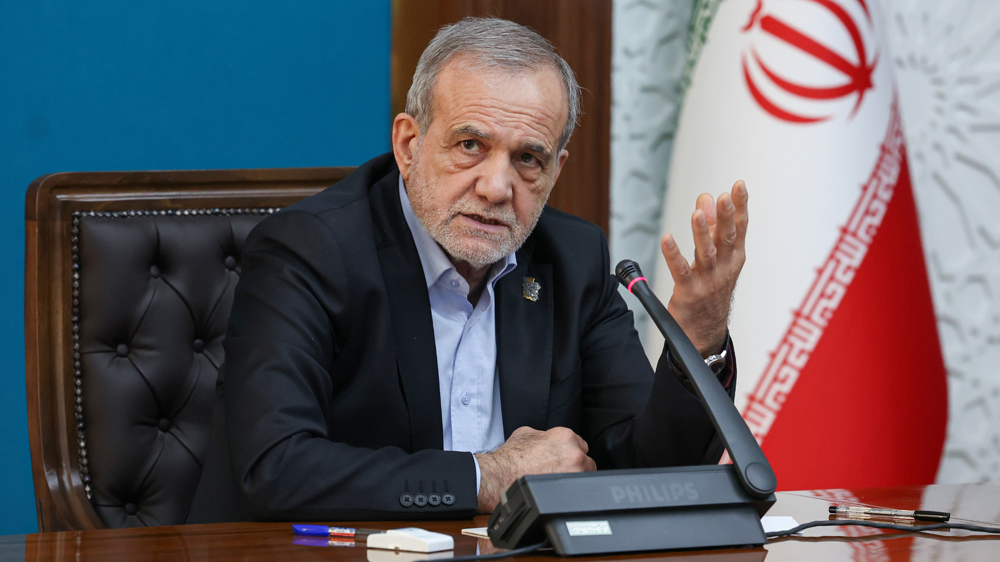UN-backed JCPOA binding deal for all members: Iran Foreign Ministry spokesman
The spokesman for Iran’s Foreign Ministry says the multilateral nuclear agreement signed between the Islamic Republic and major world powers in 2015, has been endorsed by the United Nations Security Council Resolution 2231 and all UN member states are bound to implement it.
In an interview with the Persian-language newspaper, Hamshahri, which published on Sunday, Saeed Khatibzadeh added that the United States, which was a signatory to the nuclear deal, officially known as the Joint Comprehensive Plan of Action (JCPOA), “unilaterally ended its membership and after that, outrageously violated Resolution 2231 both by refraining from implementing its own commitments and preventing other signatories from fulfilling theirs.”
He added that other parties, particularly the three Europeans signatories to the nuclear deal -- Britain, France and Germany -- have also seriously violated the JCPOA by failing to fulfill their obligations as per the deal and remove sanctions against Iran.
“Certainly, the JCPOA is a framework. We have negotiated it once and reached a framework that cannot be renegotiated and we are committed to it,” the Iranian spokesperson said, expressing hope that the other parties would also return to the full implementation of their undertakings as soon as possible.
Khatibzadeh noted, “If the day comes [when all signatories start fulfilling their JCPOA commitments], we will rewind the steps we have taken to reduce [our commitments] within the framework of the JCPOA, which are reversible.”
US President Donald Trump unilaterally pulled Washington out of the agreement in May 2018, and unleashed the “toughest ever” sanctions against the Islamic Republic in defiance of global criticism.
Following its much-criticized exit, Washington has been attempting to prevent the remaining signatories – Britain, France, China and Russia plus Germany – from abiding by their commitments and thus kill the historic agreement, which is widely viewed as a fruit of international diplomacy.
Iran remained fully compliant with the JCPOA for an entire year, waiting for the co-signatories to fulfill their end of the bargain by offsetting the impacts of American bans on the Iranian economy.
In response to the US unilateral withdrawal from the JCPOA, Tehran has so far rowed back on its nuclear commitments five times in compliance with Articles 26 and 36 of the nuclear deal, but stressed that its retaliatory measures will be reversible as soon as Europe finds practical ways to shield the mutual trade from the US sanctions.
Addressing the 6th edition of the Rome Mediterranean Dialogues 2020 earlier this month, Iranian Foreign Minister Mohammad Javad Zarif reasserted the Islamic Republic’s position that the JCPOA is not open to renegotiation and that the US has to observe the agreement and the UN resolution that endorses it.
“It (the United States) has obligations, responsibilities as a UN member, as a Security Council member. And there’s a Security Council Resolution 2231, which the US must observe,” the senior diplomat noted.
Read more:
-
Russia opposes JCPOA revision, inclusion of non-nuclear issues: FM Lavrov
-
Iran urges all JCPOA parties to work towards safeguarding 2015 nuclear deal
'Next US administration’s deeds more important than words'
Elsewhere in his interview, Khatibzadeh referred to the remarks made by the US president-elect, Joe Biden, on various international developments, including Washington’s approach to Tehran, saying that as far as words go, Biden’s remarks are different from actions taken by the administration of the incumbent President Trump.
He added, though, what is important to Iran is the practical steps that the new US administration will take, not just its words.
“What has been heard from Mr. Biden indicates that he wants to implement his definite commitments in various fields, including with regard to the Paris [climate] agreement and other treaties such as the JCPOA,” the spokesman said.
He noted that there are “clear” differences between Biden’s remarks and the actions taken by the current US president, “but we have to see how the next US administration will act.”
It seems that the next US president has understood that Washington has been pursuing failed policies in the region and seeks to revise them, Khatibzadeh pointed out.
Trump has made several controversial decisions since he took the oath of office in January 2017, including the ones that forced the US out of international treaties in defiance of the global outcry.
The Trump administration pulled the United States out of the Intermediate-Range Nuclear Forces Treaty (INF) with Russia last year. The 1992 treaty allows member countries to conduct short-notice, unarmed, reconnaissance flights over the other countries to collect data on their military forces and activities.
Trump has also pulled his country out of the UN cultural and educational organization, UNESCO, the Paris climate accord and the UN Human Rights Council.
VIDEO | Press TV's news headlines
VIDEO | Iran will not 'capitulate' since it has military surprises for US
China overtakes US as Germany’s top trading partner
VIDEO | Displaced Gazans struggle to find clean water amid Ramadan
VIDEO | Pakistan strikes militant camps along Afghan border after suicide bombings
Iran FM: Chance still exists for win-win solution to nuclear issue
Denmark rejects Trump's plan to send US hospital ship to Greenland
US Secret Service kills man trying to enter Trump’s Mar-a-Lago estate












 This makes it easy to access the Press TV website
This makes it easy to access the Press TV website